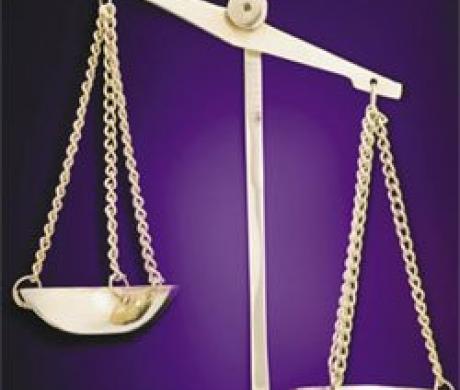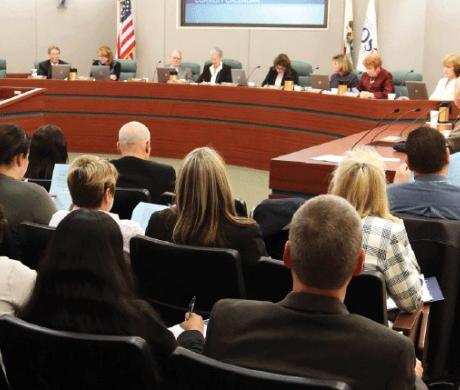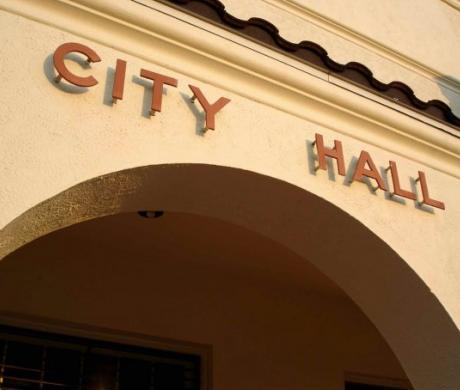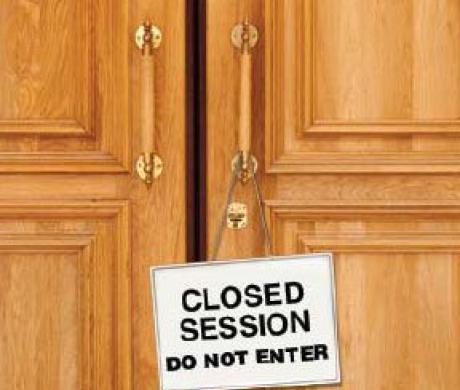How Effective Is Your Council?
Many cities in California use the at-large system for their city council elections, whereby council members represent the entire city rather than a specific district. In such cities, after the election is over it can be hard to put aside the competitive mindset, move beyond politics and begin working together as a cohesive team to do what’s best for the community.
The challenge of abandoning the often combative approach used in campaigning can be compounded by differences in communication styles among members of the council. Each of us has a unique way of communicating with others. Experts attribute these differences to a variety of factors — an individual’s personality, cultural background and gender can all play a role in personal communication style.
Effective leaders, however, typically find a way to talk about even the most controversial issues in a thoughtful and non-inflammatory way as part of a deliberative discussion.
How Councils Court Disaster
A city council that has not developed the skills necessary to communicate respectfully, both within the council and with others, is courting disaster on several fronts. First, if the council maintains a competitive dynamic over several election cycles, it becomes the council’s culture and its norm. A council that is known for bickering and infighting on the dais:
- Hampers its effectiveness because issues aren’t addressed calmly and thoughtfully;
- Sets a poor example of public discourse for the community;
- Erodes public trust in local government and City Hall;
- Discourages people from participating in the process because they don’t believe their voices will be heard; and
- Dampens the enthusiasm of young people who might otherwise consider pursuing careers in local government.
Interpersonal dynamics on a council can be challenging. Furthermore, when one member consistently behaves badly, the entire council gets a black eye. What can be done to turn around a council whose communication has devolved into arguments and personal attacks?
Why Civility Matters
It can be helpful to start by examining the role civility plays in local governance. An “Everyday Ethics for Local Officials” article titled “Promoting Civility at Public Meetings” (August 2003, Western City) offers the following observations and advice:
Civility refers to the way people treat each other with respect — even when they disagree. Though disagreement and confrontation play a necessary role in politics, the issue is how that disagreement is expressed. The key is to focus on the strengths and weaknesses of proposed solutions to community problems — not to engage in personal attacks against those who favor different solutions.
… If an agency finds itself in a situation in which those with the minority view are acting increasingly contentious and uncivil, a question to ponder is whether they would have a more constructive approach if they felt their views were being listened to and taken into account. Being perceived as a force of unity in the community as opposed to a force of division can have real political benefits as well. Put another way, constant bickering among community leaders can reflect poorly on all who engage in it.
… So how do we achieve more civility in public discourse? In their essay “The Meaning of Civility,” Guy and Heidi Burgess, co-directors of the University of Colorado Conflict Information Consortium, offer these suggestions:
Separate the people from the problem. Recognize that other thoughtful and caring people have very different views on how best to address their community’s many complex problems. Focus on solutions that are most likely to be successful. Avoid resolving disputes on the basis of “us versus them” animosity and seek the relative merits of competing problem-solving strategies.
Obtain the facts. Many public policy disputes involve factual disagreements that are amenable to resolution through some type of fact-finding process. Work together to resolve factual disagreements wherever possible. There are, of course, many cases in which factual issues can’t be resolved because of irreducible uncertainties associated with the limits of scientific inquiry. When this is true, contending parties need to publicly explain the reasoning behind their differing interpretations of the factual information that is available.
Limit interpersonal misunderstandings. Make an honest and continuing effort to understand the views and reasoning of your opponents.
Use fair processes. Genuinely solicit and consider public input. Make decisions on the basis of substantive arguments.
Keep trying to persuade and allow yourself to be persuaded. One crucial element of civility is the recognition by conflicting parties that it is possible they are wrong and the policies advocated by their opponents are actually better. Seriously consider the persuasive arguments made by your opponents and explain your own position.
Another strategy suggested by Tom Terez in Civility at Work: 20 Ways to Build a Kinder Workplace is to “identify the biggest redeeming quality of that person who’s always driving you crazy. Keep it in mind the next time the two of you interact.”
Practical Steps for Addressing Conflict
In cities with a council-manager form of government, the city manager can play a key role in mitigating the causes of conflict in the council. If your council is fraught with infighting, it’s likely that the city manager is also experiencing this conflict firsthand.
Bringing in a third-party neutral facilitator can be a very effective way to work through the issues underlying the animosity and lack of civility among council members. The City of Rancho Cucamonga has successfully used this strategy for over 10 years. “Every year, we bring in a consulting psychologist who meets individually with each council member and the city manager,” says Rancho Cucamonga Mayor and League Past President L. Dennis Michael. “Then he meets in a retreat setting with the entire group to develop norms on how to conduct ourselves and council business in public. This exercise makes an enormous, positive difference in how the council communicates and functions.”
If your city doesn’t currently participate in a similar exercise and your council’s interactions are contentious, bringing in outside expert help can be an excellent tool for effecting change. This type of team building also provides an opportunity to step outside the distractions and demands of council meetings and focus on improving how the council functions.
Constructive team building creates a mutual understanding of the importance of respectful communication and its central role in doing what is best for the community. Working together to find solutions to vexing local issues is very hard, if not impossible, when the council does not function as a cohesive, collaborative team. Council members must trust each other if they are to be optimally effective, and team-building exercises focus on building trust.
Team-building activities also develop the ability to identify commonalities — issues where the group can agree on values or priorities for the community. This ability to focus on areas of agreement is an essential tool for councils when dealing with difficult people in public meetings that address controversial or highly charged emotional issues.
Adopting a code of conduct for your council is another tactic your city may want to examine. Many cities have adopted such codes. Like codes of ethics, a code of conduct typically emphasizes respect for those with divergent viewpoints. The idea is to create an opportunity to engage in discussion without unpleasantness or personal attacks.
Things to Bear in Mind
If your council experiences ongoing challenges around civility, keep in mind these tips from the experts:
Focus on commonalities. Look for areas where people can agree on what’s important.
Trust is key. Find ways to cultivate and foster trust among your council colleagues, city manager, staff and your community.
Put your ego aside. When fulfilling your responsibilities as an elected local official, concentrate on doing the best possible for the greater community. This is easier for some people than others.
Don’t respond when someone pushes your buttons or baits you. This takes practice and self-discipline, but it can be done. Staying calm is your best defense when being attacked, and it can prevent you from saying something in the heat of the moment that you may later regret. It also tends to discourage the antagonist in the long term if he or she cannot provoke an adverse reaction.
Public Perception and Your Legacy
Consider how your actions and words on the dais come across to your constituents and the local media. Is your council seen as argumentative, uncooperative or even boorish?
If your council is contentious, think about these questions: What’s your legacy to the community likely to be? Will you be remembered as a thoughtful problem-solver or a malicious bomb-thrower? Is your behavior constructive and solution-oriented or destructive and self-promoting at the expense of the greater good?
Remember: It’s not war, it’s public service and public policy.
Successful councils focus on doing the best for their community. It’s our responsibility as council members to investigate the facts and ensure that we are doing everything possible for the good of the community. This includes speaking up on behalf of those who do not have a voice in the process and those who are less affluent or privileged. Doing so requires a culture of civility and mutual respect on the council and in the council chambers. (And here I must add a side note related to civility. Don’t berate or criticize staff in public meetings. It’s damaging and counterproductive. Any criticism should be tactfully worded and delivered in a private setting.)
Based on my personal experience in dealing with these types of issues, I found the material presented here helpful and hope these tips are useful for you. There is always room for improvement, even on the most smoothly functioning council. I encourage you to explore the resources provided by the League and the Institute for Local Government pertaining to these issues. And in the spirit of constructive self-evaluation, take the quiz below, “How Does Your Council Conduct Business?”
How Does Your Council Conduct Business?
It’s helpful to reflect on the dynamics of your city council and the challenges associated with its communication style. This short quiz can be used as a discussion tool with your fellow council members and city manager.
My fellow council members are respectful of each other, staff and the public and listen without interrupting.
Always Sometimes Never
When we disagree, we do so without being disagreeable toward each other.
Always Sometimes Never
We are open to hearing information that may change our position on an issue.
Always Sometimes Never
We may ask questions of department heads, but rely on the city manager to give direction to staff.
Always Sometimes Never
Our council participates regularly in team-building exercises.
Always Sometimes Never
We actively foster an atmosphere of trust and collaboration.
Always Sometimes Never
I can count on my fellow council members to conduct themselves professionally.
Always Sometimes Never
We consistently use agreed-upon procedures for dealing with dissension on the council.
Always Sometimes Never
Related Resources
Institute for Local Government
http://www.ca-ilg.org/leadership-and-governance
http://www.ca-ilg.org/ethics-transparency
This article appears in the November 2016 issue of Western City
Did you like what you read here? Subscribe to Western City









